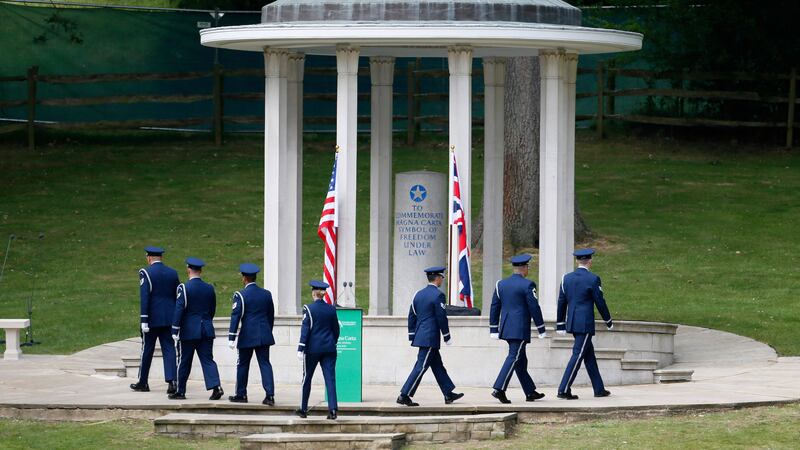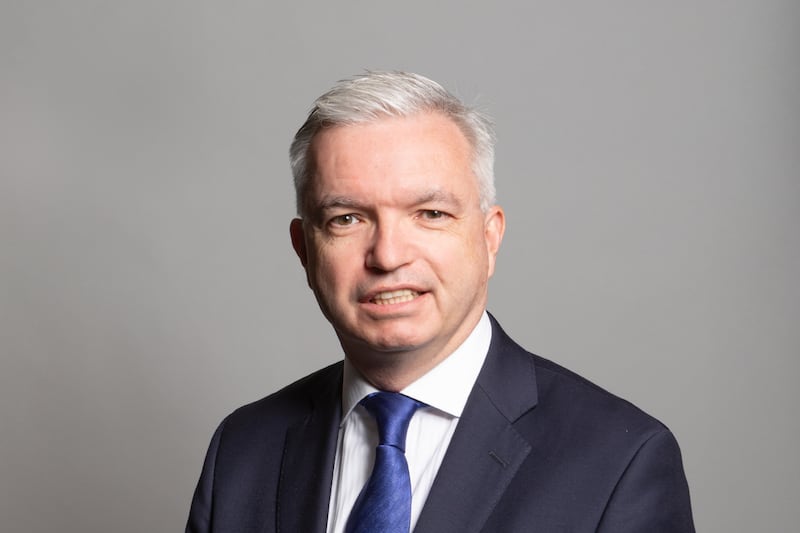THE Magna Carta’s symbolic role as the touchstone for human rights and modern democracy was celebrated by one of Britain’s leading judges marking the 800th anniversary of the accord.
Lord Dyson, Master of the Rolls and chairman of the Magna Carta Trust, spoke on the very site at Runnymede where, eight centuries to the day, King John accepted the feudal baron’s document that limited the power of the crown.
Joined by the queen, prime minister, the Archbishop of Canterbury, senior royals and an audience of thousands – including senior American lawyers – he described the ground-breaking accord as “a symbol of democracy, justice, human rights and perhaps above all the rule of law for the whole world”.
Lord Dyson, the second most senior judge in England and Wales, after the lord chief justice, spoke ahead of prime minister David Cameron who said fundamental reforms to UK human rights laws were required to “safeguard the legacy” of Magna Carta.
The prime minister said its principle is “as relevant today as it was then” and remains “sewn into the fabric of our nation, so deep we barely even question it” but complained that the notion of human rights in Britain eight centuries on has been “distorted and devalued”.
The Master of the Rolls said about King John and the barons: “They would surely have been astonished to learn that over time Magna Carta came to be regarded as one of the most important constitutional documents in our history and that it continues to be so regarded 800 years after it was sealed on this very spot.
“They would not have believed that the barons’ list of demands would become a symbol of democracy, justice, human rights and perhaps above all the rule of law for the whole world. But that is exactly what has happened.
“Magna Carta has had its ups and downs. But it was a hugely significant step on a journey which led to the building of a society where everyone has equal rights and nobody is above the law.
“A few clauses of Magna Carta are still part of our law, including famously the provision that no free man shall be taken or imprisoned except by the lawful judgment of his peers or by the law of the land; and to no-one will we sell, to no-one will we deny or delay right or justice.”
Although the Magna Carta only remained binding on King John for a number of weeks it set a precedent and its influence spread far not just domestically but abroad, including the US Constitution and the Bill of Rights and the post-Second World War UN Universal Declaration of Human Rights.
In the US its importance is recognised and the American Bar Association erected a monument to the document on the Magna Carta site in the 1950s which the Princess Royal rededicated yesterday.
Among the guests was US Attorney General Loretta Lynch who a few weeks ago was the public face of America’s corruption case against Fifa officials.
“This social contract between a monarch and his people codified, however imperfectly, notions that would one day stand at the heart of our own system of justice.
“The idea that no power is unconditional and no rule is absolute,” she said.
Ms Lynch added: “For those that drafted the US Constitution, the significance of Magna Carta was clear - its influence helped shape a political system that enshrines separation of powers, due process and the rule of law.”
The Conservative Government has controversial plans to scrap the Human Rights Act and assert the role of the UK’s Supreme Court over the European Court of Justice in Strasbourg – leaving open the option of withdrawing from the European Convention of Human Rights if reforms are blocked.
Mr Cameron said in his speech: “It falls to us in this generation to restore the reputation of those rights – and their critical underpinning of our legal system.
“It is our duty to safeguard the legacy, the idea, the momentous achievement of those barons. And there couldn’t be a better time to reaffirm that commitment than on an anniversary like this. So on this historic day, let’s pledge to keep those principles alight.”
In his address to the audience, the Archbishop of Canterbury highlighted how his medieval predecessor Archbishop Stephen Langton played an important role in the Magna Carta, and how archbishops Alphege and Anselm may have lived before the document was drawn up but embodied its principles.
But he also acknowledged the “failings” of the Church in the past to support those fighting for social justice.
Justin Welby said: “Archbishop Stephen Langton was mediator between the king and his barons, counsellor to both and an advocate of civil harmony, cohesion and goodwill.”
He went on to say: “In the centuries since, how often the Church has failed to uphold these most noble qualities, to be an advocate for those members of our community for whom the rights and liberties of Magna Carta have remained a distant hope.”
The Duke of Cambridge launched the day’s events by unveiling an artwork commissioned for the occasion called The Jurors, in the form of 12 bronze chairs representing the jury system, which grew out of Magna Carta.
The chairs feature 24 stories relating to justice, including those of Nelson Mandela, Mahatma Gandhi and Oscar Wilde’s Ballad Of Reading Gaol.
Details on the chairs include the key to Mr Mandela’s jail cell, the key to the Bastille and black-eyed Susan flowers, which are traditionally associated with justice.








